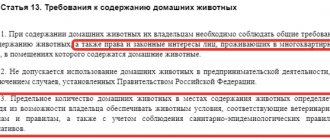Housing legal relations are often accompanied by quarrels and litigation. Often the problem arises because one owner begins to find out whether it is possible to register a person without the consent of other owners and how long it will take.
Sometimes registration is necessary without the consent of the person prescribed. Is it possible to carry out such an event legally, what legal methods make it possible to register citizens in an apartment without the consent of the persons registered in it, and also when does such a need arise? Answers to all questions posed can be found in this material.
Registration algorithm
Russian legislation requires citizens to notify the state of their location. Popularly this is called registration, in government acts - registration at the place of residence (stay).
The algorithm by which you can register a person if there are two owners or one in the apartment is standard. To do this you need:
- collect a package of papers: passport,
- reasons for residence,
- permission from the owners (if registration is not in your own home),
- house book (optional);
The procedure may be supplemented depending on the situation.
Read more about how to register in an apartment.
When there is a need for registration without consent
For 2021, the most common reason for registration is a change in the marital status of one of the property owners.
In these cases, a person may wish to register his spouse or child in the apartment of which he is a co-owner.
However, other residents may be against this. It is in these situations that the question arises: is the consent of all owners required for registration?
Usually it is necessary to register close relatives (spouse, children, parents, sisters or brothers), but sometimes these are strangers.
Registration without the owner’s permission: is it possible in principle?
A person who is faced with the problem of registering for the first time in a property that is not his own, wonders whether it is possible to register in an apartment without the consent of the owner at all, or whether this point is mandatory under any conditions.
The answer is to be found in legislation. Thus, regulations say that the permission of the owners of living space to register third parties is mandatory. It is expressed at the time of submitting an application for registration in writing.
If it is not possible to be present in person, a notarized written position of the owner is submitted. A sample of its design can be seen below.
Permanent or temporary registration without the consent of the apartment owner is possible only if a minor child is registered with his parents (or one of the parents). In this case, you do not need to ask anyone for permission. It also does not matter whether mom (dad) has ownership rights to this premises.
You can register yourself in your own apartment (or part of it) without asking.
That, in fact, is everyone who can register in an apartment without the owner’s consent.
FIRST ALARM CALL
Intercom call. The man wants to see Polina Viktorovna Eremenko. We explain to him that she does not live here. The man at the entrance is perplexed: “How can this be? The tax office gave me this address!”
We invite the man to get up to figure out what's what.
It turns out that several months ago he bought P.V. from Eremenko. car by proxy. Now a situation has arisen when the car needs to be deregistered, but without the owner he cannot do this. And she can’t find this owner.
They sympathized, shook hands and went their separate ways. But my seed of doubt began to sprout thorns. I remembered that I should still contact the police.
Permission from all owners to register unauthorized persons
You must obtain permission from the owners to register in housing regardless of the type of registration: temporary or permanent.
Let us remind you that registration at your place of residence requires a stamp in your passport.
If there is no passport (a child under 14 years old, for example), a certificate is issued in Form No. 8. Permanent registration is unlimited.
You can confirm the fact of registration at your place of residence using a certificate in Form No. 3.
In this case, time limits are always implied. Despite this, the consent of all owners is required if the registration is temporary.
The status of the owner of the living space is also important - it is an individual, government agency or municipality.
So, if the house is privately owned (privatized, purchased, donated, inherited, etc.), then the standard rule applies: permission from the owners is always required. The only exception is the case of registration of minors: here the consent of the second owner for registration, just like everyone else, is not necessary.
If the housing is municipal property, then the owner is the state or municipality. Residents live here on the basis of a social tenancy agreement. Permission must be asked from the main tenant of the property (with whom the contract is concluded). Also, everyone registered in this living space should not be against the registration of a third party.
In this case, the question of whether consent is needed for the registration of other owners is irrelevant, since they simply do not exist. The apartment is not their property, but temporarily used housing on the basis of an agreement concluded with one owner.
If only one disagrees
Controversial issues arise when there are several owners and it is necessary to coordinate the issue with each of them. In order not to come in crowds to the migration authorities, one document is drawn up signed by everyone.
A frequent case is when two owners agree, but the third does not. In this case, the question arises whether it is possible to register in the apartment without the consent of one of the owners. The answer is predominantly negative for private households. If, for example, a mother, father and son are homeowners, and the son wants to register his wife, then this can only be done with the written permission of both parents. If, for example, the father is against it, this cannot be done.
To get out of the situation you can:
- donate part of your share in the property to the person you want to register, for example, your spouse;
- prove in court why it is necessary to register a specific person in housing even without the consent of all its owners,
- divide large apartments into shares through the court.
The situation is different with social housing. According to recent changes in legislation, the question of whether one of the owners can register someone without the consent of the other owner is resolved positively if this “someone” is his close relative. The concept applies to:
- children (meaning adults, consent under 18 is not required),
- spouses,
- parents.
In the case of grandparents, brothers and sisters, uncles and aunts, the degree of relationship is considered distant, and their registration follows a standard procedure, that is, permission from all owners must be obtained.
General concepts
Currently, temporary registration is a mandatory condition for all citizens if there is no permanent one in a particular place of residence. People face problems when they do not have their own home to register. In such a situation, citizens turn to their relatives or close people to obtain the required registration.
But the co-owners of such premises do not always agree with this state of affairs. Since if there is an outside occupant, the co-owners are afraid of losing their share, and they do not want to give consent for registration. But in this situation, it is necessary to understand that such registration does not provide citizens with any rights to housing. In this case, the registered person does not receive part of the apartment. This is done only for the purpose of notifying the migration service about the citizen’s place of residence.
In this case, the exception will be the option when the apartment is municipal. Because when it is privatized, all persons registered on its territory will be able to count on receiving their share.
Registration in housing with shared ownership
A common situation is when a house is divided into parts. Here the problem arises: is the consent of all owners necessary to register a person as their share in the apartment.
The answer to this question depends on the layout of the home. So, if in a house each person has his own documented room (for example, a specific room) and there is a separate entrance, then you can register people with you without additional permissions.
If the house is divided into shares abstractly, without delineating the boundaries of each, and there is no separate entrance, then registration occurs according to the standard algorithm. In this case, the question of whether the owner can register for his share without the consent of other owners is resolved negatively, since the entire “collective” is considered the owner of the property, and not its individual members.
Read more about how registration in an apartment with shared ownership occurs.
The exception, again, is the registration of minors, which occurs without any permission. Children in any housing where their legal representative (parent, guardian or trustee) is registered have the right to be registered unconditionally.
But the solution to the question of whether a wife can register with her husband without the consent of the owner of other shares is decided according to the rules described above.
What rights does a registered citizen receive?
Registration of a citizen in a specific premises provides certain rights and the opportunity to use as he wishes. At the same time, registration does not give the right to dispose of housing in the legal field.
For example, a citizen cannot donate, mortgage or sell an apartment without the permission of all other property owners. Moreover, if the owners wish to exercise their rights and sell the property, the permission of the registered person will not be required. The exception is when the resident has a child. A minor citizen is registered on the premises without the permission of the owners.
Rights of those assigned to housing
Many homeowners are afraid to register other people (even relatives) with them, fearing any property claims or other problems from registered citizens. To calm down, you need to read the law.
The rights of the owners are protected. The question of whether a registered person can register another without the consent of the owner has a positive answer only in the case of minor children. That is, simply registered people do not have any opportunity to commit illegal actions with property without the knowledge of the owners. They cannot give, sell, inherit or prevent third parties from moving into the house.
Registered citizens have only the right of use (not ownership) of housing, which implies:
- accommodation,
- possibility of registering children,
- receiving government services.
We recommend that you learn more about what the rights of those registered in the apartment are.
WHERE IT ALL BEGAN
A letter addressed to Polina Viktorovna Eremenko arrived in our mailbox.
This was 10 years ago, then people still sent letters to each other, and not like now - only emoticons in gadgets
First reaction: the postwoman made a mistake. But no, the address was ours. This means that the sender wrote the address incorrectly. Well, it happens. The next day I returned the letter to the postwoman.
After some time, the same letter was again in the mailbox and again I returned it to the postwoman. But at the same time I noticed that the sender was the tax service. I was surprised how inattentive the people work there.
When the third letter appeared, a seed of doubt sprouted in my soul: something was wrong here.
I found the tax office's phone number and called. As always, at first I was sent from one phone to another, until, finally, the next girl, having looked at P.V. Ermolenko’s data in the database, reported that the copy of her passport contained registration at our address.
It's called: we've arrived...
The seed of doubt has not just sprouted, it is already blooming in full bloom: what, are we paying for a stranger’s accommodation?
My husband and I pick up all the receipts, check, reconcile, and sigh with relief: no, the payment goes only for our family members.
To make sure, I go to the passport office, explain the situation, and get a copy of the personal account. We breathe a sigh of relief again: only our family is listed on the personal account.
What are the dangers of having a stranger register in your apartment?
The owner of an apartment who decides to register a stranger in it must take into account a number of difficulties that may arise for him subsequently:
- He will not be able to fully use his housing, because... he will have to take into account the opinions of all the residents registered in it.
- It will be possible to evict a stranger only after the end of temporary registration or by a court decision if he opposes relocation.
- An outsider will be able to register their child in the living space without the consent of the owner. A permanent registration is made, which is problematic to cancel even through the court, because We are talking about a minor.
If the number of people living on the territory exceeds the social norm for living space, government agencies may suspect the owner of fictitious registration, and if there is evidence, bring him to criminal liability under Art. 322.2 of the Criminal Code of the Russian Federation.
What is the difference between registration and temporary registration?
There is no such legal formulation as “registration”, and the term “registration” is used everywhere. Therefore, it is necessary to become familiar with the differences between permanent and temporary registration of a stranger in your apartment by studying the table.
| Kinds | Deadlines | Calculation of utilities | Termination | Confirmation document |
| Temporary | Issued for a specific period | Not recalculated | On the last day of the deadline | Certificate |
| Constant | Indefinite | Payment costs increase | By consent or through court | Mark in the passport |
If a citizen has received a temporary registration, but after its expiration he wants to remain in his previous place, he needs to visit the FMS again and extend its validity.
Unlike limited registration, permanent registration gives a stranger a lot of advantages:
- He will be able to participate in the privatization of municipal housing.
- Without his consent, you cannot register other people.
- With indefinite registration, you can register your relatives in housing.
Temporary registration is issued in the form of a Certificate, which will indicate the start and end dates of its validity. This option is considered the safest for owners, and in this case their rights to use the property are practically not limited.
Is it possible to register at the place of residence with the owner of the apartment?
The main regulatory document establishing the rules of registration and obliging citizens to contact the registration authority in order to register at their place of residence or place of stay is Government Decree No. 713 of July 17, 1995. Registration is of a notification nature, documents must be submitted no later than 7 days from moment of arrival at a new place, otherwise you may face fines.
Article 2 of the Law of the Russian Federation of June 25, 1993 No. 5242-1 uses such a basic concept as place of residence - it recognizes the residential premises in which a citizen lives on the basis of:
- property rights (registration of a person in his own apartment is written here);
- lease, sublease, lease, gratuitous use agreements;
- other grounds provided by law.
The owner has the right to register in the housing he owns:
- members of your family - upon presentation of a document confirming relationship;
- strangers - subject to a number of conditions.








